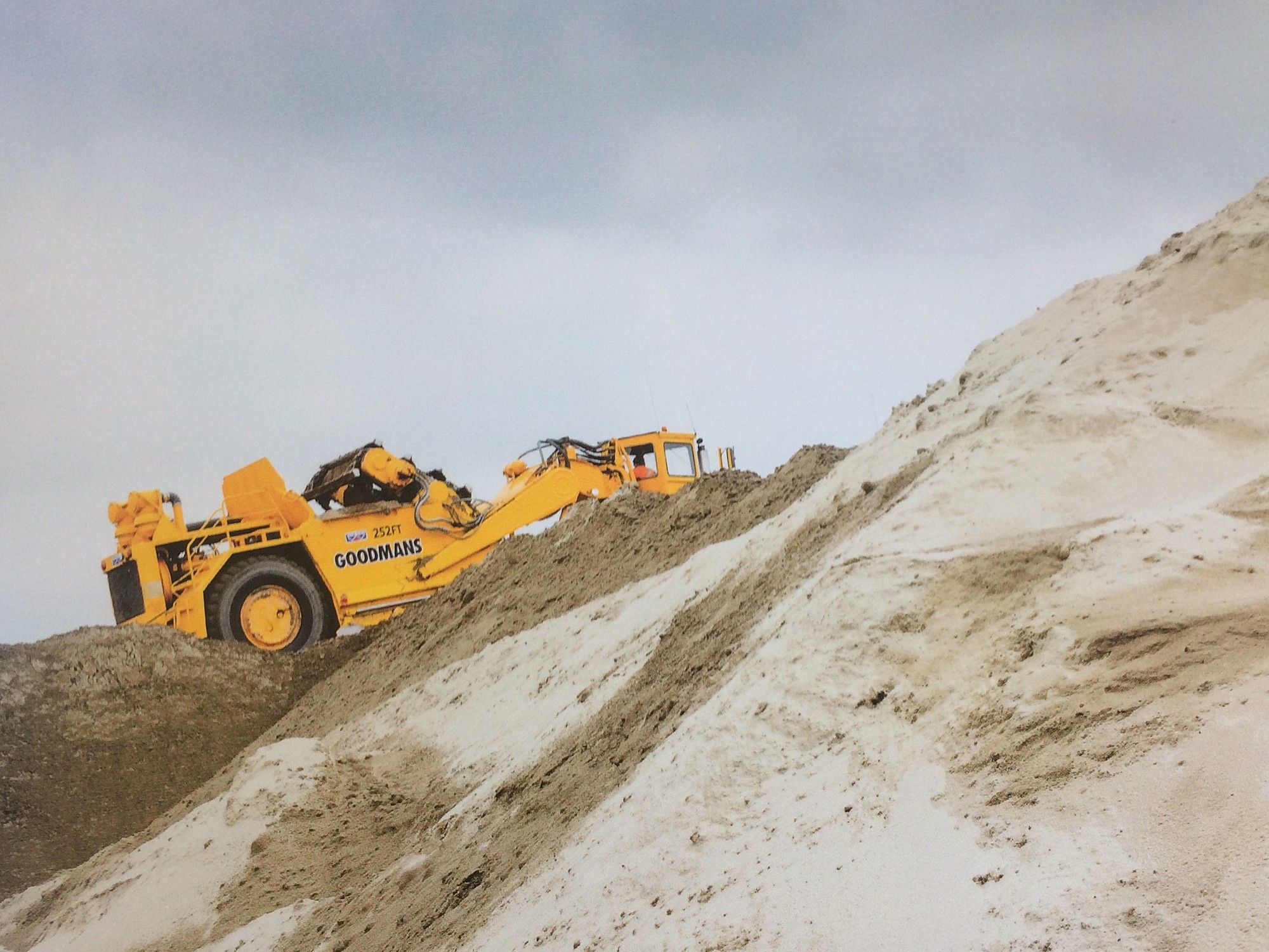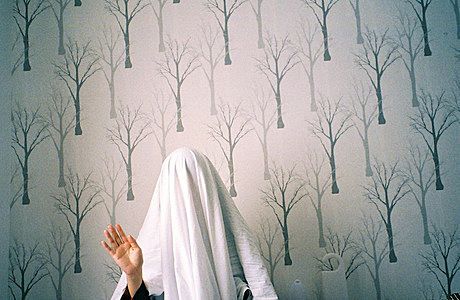Waiariki: A Poem About Protecting Ancestral Land
An extended narrative poem about protecting ancestral whenua, by Michaela Keeble.
In her recent essay about the significance of Ihumātao, Jade Kake writes, “hapū and whānau are constantly being bombarded with similar issues, all around the motu ... developing land of significance to Māori is seen as the path of least resistance.”
In 2013, the Crown attempted to confiscate Māori land in Waikanae for the Kāpiti Expressway, even though there were five other alignment options for this section of the road. The land – belonging to the Grace whānau – is the only remaining piece of what were the vast holdings in Waikanae of Wī Parata Te Kākākura, a benefactor who in his time gave generously to public works, including for a church, a school and the railway.
The Grace whānau successfully defended their land against the Crown in both the Māori Land Court and the Environment Court. The Māori Land Court recommended the ancestral land be given protective status, and the Environment Court found it wasn’t necessary to take their specific block of land. Nevertheless, despite being forced to make a slight realignment of their road, the Crown still used the Public Works Act to take other Māori land, wāhi tapu, including from neighbours and whānau.
This long, narrative poem is an acknowledgment of and for the poet’s partner, Waiariki Grace, one of Wī Parata’s descendents. Waiariki and others worked on their ancestral whenua for the duration of the construction, monitoring the earthworks to ensure the Crown observed full and proper protocol, including around findings of archaeological significance.
*
Waiariki
we came to visit you
at work
watched you walk
off the hill
your high-vis jacket
your waist-length dreds
and the mānuka stick
you’d been carving
with the names of
all the waterways
from Waikanae
to Paekākāriki
*
“it’s not carving”
you cringe
you don’t agree that
you’re an artist
“it’s just a stick”
that stands
as high as your shoulder
walks you
out of the hills
set forward
in the way
that you walk
*
ten hours a day
for two years
you monitor
their machinery
they use GPS
to cut the ground
but still can’t see
what’s plain in the dirt
on the days you spot
white shell in the earth
you signal
for the digging to stop
ring in
the archeologist
but there are earthworks
all over the site
you can only be
in one place at one time
*
it’s impressive, the way
they drill steel beams
into the bone
of the hill
fix them together
so they’ll never shift
they make this frame
for the concrete face
of a Wall that stops
the hill from falling
you’re a builder
their workmanship is moving
*
the workers are
wary of you
because you get paid
but don’t have to labour
because with your stick
and your stoop
you could be a prophet
or a homeless person
and one is as dire
as the other
they keep their
distance
a year before they let you
eat with them
but you have no beef
with the workers
you worry for them
you want them safe
half of them
are Māori
they’ve heard this place is
wāhi tapu
though do they have
a choice?
*
you take part in
morning exercises
you lead them
in your own strange yoga
“Breathe in!
Everyone say: Tuku.”
“Breathe out.
Everyone say: Rākau.”
“Tuku. Rākau.
Tuku. Rākau.
“Tuku Rākau!”
you don’t tell them
what it’s about
up to them to ask
for the name
of this place when
Wī Parata heard
change on the tide
gave ground
for the railroad
and moved
the village inland
to improve
the chance of trade
*
mud streams into
the Waimeha
cleanest river
on the coast
so clean the eels are
jet black
even the kōura
sixty years old
as black and slick
as motorbikes in rain
after every rain
you walk the site
you check for breaches
in the bunds
you track the silt
back to its source
you tell them how
they could fix it
though they pay others
to do this
*
you spy a rare grey duck
and call the ecologists
at first they humour you
but when they see it
with their own eyes
they look at you sideways
they don’t see the boy
who climbed every tree
to steal one egg
from every nest
they don’t see his
collection in the attic
*
you’re drinking
in the garage
one eye fixed on history
one wandering
from your fifth
can of beer
I know why you’re drinking
I know you’re chasing
the tail of the same idea
around an inescapable maze
how can they do this?
how can we stop them?
how can they do this?
how can we stop them?
they are doing it
and you are stopping them
and you’re not
stopping them
the Wall – Te Kākākura –
protects the hill
and marks the hill
not fully protected
*
one man left
to clean Te Kākākura
before it’s blessed
on Saturday
“same old shit”
the old man says
not the Wall
he means the road
the Māori land
the wāhi tapu
the work he has to do
on their behalf
“he’s over sixty,” you tell me
“he’s black
“he has no teeth
“he’s still working
“for next to nothing”
you witness
and experience
the insult
*
last week a truck
ignored the briefing
got stuck
below the bridge
turning round
in the mud
“up to its bumpers!”
you laugh
and tears fall
from your eyes
you laugh and laugh
and stifle your laughter
it’s late
and the baby is asleep
in bed, you ask
in Māori:
who shall work
for nothing?
who shall inherit
the earth?
*
this morning you listened
to the last of the quiet
the last weeks
for the birds
to make themselves
clear
no karakia
no safety briefing
no morning exercises
no machinery
there’ll never again
be quiet on this hill
a four-lane
freeway
and noise
or the threat of noise
*
now the drive
from McKay’s Crossing
bypasses
Waikanae Village
and peters out
at Pekapeka
sometimes I’m surprised
to have missed Te Kākākura
perhaps I was looking
for the urupā
or the swamp where Pohe
lost her life
or the spring
where women went
to birth
their children
more likely
I missed the Wall
because I was
distracted
mind on where
we’re going
not on where
we’ve been
*
you did your job
and we’re proud
you are not giving them
what they want
fresh water
storm water
salt water
raupō filters it all
the tide is rising and as far
into our future
as Tuku Rākau
is into our past
the sea will reclaim
these sandhills
the road will sink
beneath the surface
even if it’s not yet
over
*
tonight you’re writing signs
for the riders
who’ll come upon
this place by surprise
every night you rewrite
your text by hand
you’re suspicious
of computers
half our table and the carpet
beneath your chair
disappears in a swamp
of paper
names, events
decisions
all turn soggy
in the peat water
everywhere around us
land is being washed away
even as the land
remains
the drive past Waikanae
is now so fast
but where are we going
and why?

